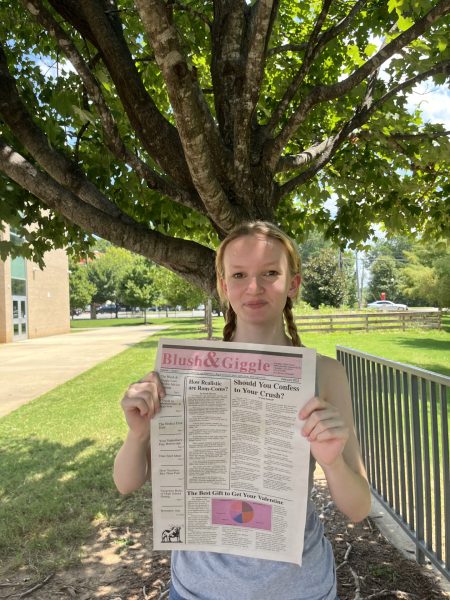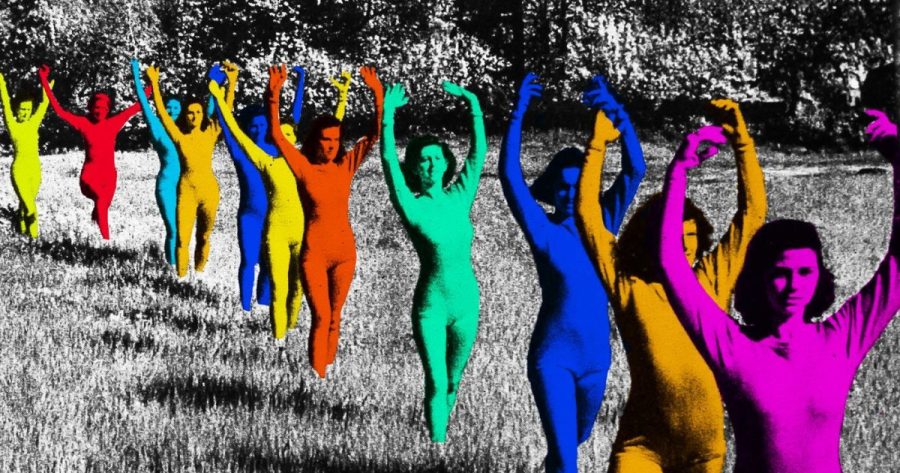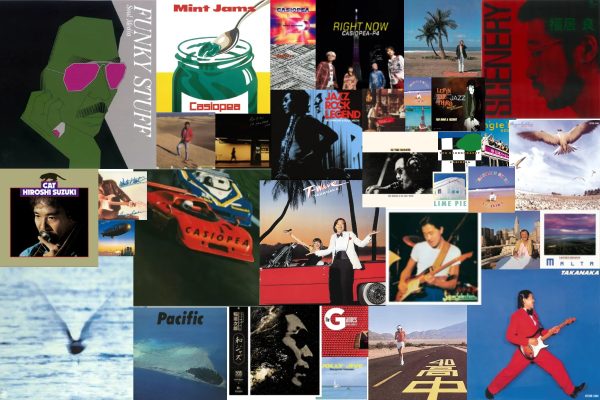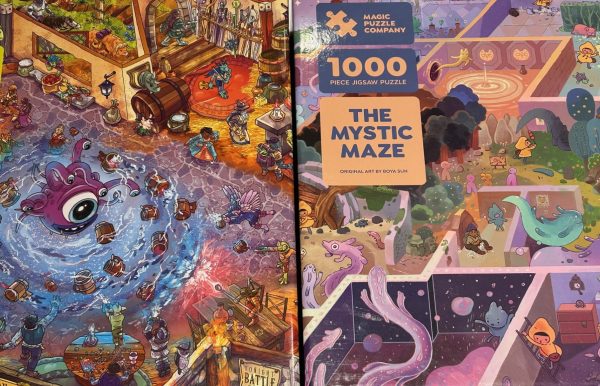The Life of the Party—”Death of a Party Girl”’s Top 5
2018 was the heyday of TV Girl: coming off the high of “French Exit” and “Who Really Cares”, the indie bedroom-pop band was invincible. While most of their recognition would not come for several more years, 2018 was also the year they released their magnum opus album, “Death of a Party Girl”. Beneath TV Girl’s signature cheery instrumentals and ambivalent vocals, “Death of a Party Girl” touches on a litany of important subjects, from the disposability of actresses and young women to longing for a more exciting life. Here are the top five songs of TV Girl’s best album.
Number Five: “Seven Days til Sunday”
Rating: 6.5/10
Best Lyric: “But still I stood out there in the street / Throwing stones at her window / Like I saw somebody do on TV”
“Seven Days til Sunday” begins with a cheerful instrumental as the narrator segues into his surface-level relationship with a girl. Throughout the song, little romantic gestures devolve into something unwelcome as the relationship deteriorates, showing the space that was between the singer and his partner all along. A brisk beat and joyful choral effects keep the song going, showing the indifference of it all: though the narrator is watching himself become obsolete in the life of someone he once cared about, it seems to have no effect on him at all.
Number Four: “Every Stupid Actress”
Rating: 8/10
Best Lyric: “And to me there’s nothing sad about a dream / She screamed / As she swan dove off a pearly white H”
“Every Stupid Actress” is one of TV Girl’s more controversial releases. The song touches on naivete and hopeless ambition, specifically in regards to the hopeful young women of Los Angeles. To me, this is clearly only an example of the naivety of impossible dreams, but the song has been decried for supposedly misogynistic undertones. The heavy lyrics are carried by a laissez faire backtrack. Its strength is how smoothly it switches between perspectives: it at once talks about how badly the hypothetical girl wishes for fame, and how she sacrificed the admiration of her hometown for a bigger stage in LA. To close the song, the narrator speaks of himself as one of these girls, showing an empathetic perspective on the rest of the song, and quietly revealing the ultimate knowledge that his hopes are all for nothing.
The lyrics are further bolstered by one of TV Girl’s biggest strengths—historical references. The final (and best) lines refer to the suicide of Peg Entwistle, an actress who failed to succeed after moving to the US, by jumping off the Hollywood sign.
Number Three: “Cyncial One”
Rating: 8.5/10
Best Lyric: “And I can still remember / When too much, too much was never enough”
“Cynical One” presents itself with a twinkling melodic track reminiscent of a lullaby laid over with dragging lyrics and a laissez-faire attitude from the singer. The lyrics warrant the title: a hopeless yet longing sonnet to an unknown recipient where the singer takes the burden of relationship by cementing himself as “the cynical one”. Here, TV Girl’s lyrics shine; the song is both hopeless and desperate at once, and the lyrics are just vague enough to maintain intrigue while effectively conveying just how sweet the singer’s love once was.
Number Two: “Blue Hair”
Rating: 9/10
Best Lyric: ‘And she cried over nothing / So there was nothing I could do to stop her from cutting / Her beautiful blue hair off”
Only the album’s third track, “Blue Hair” is a monument to double entendre and clever lyricism. Its backtrack is both choral and cheerful, as is the vocals—but meaning pauses and cut phrases create alternative meanings that are almost immediately subverted when the line is picked up again and completed. Its lyrics take a distant approach as the singer watches a girl he loved grow up and become a different person, all signified by the fading of her hair and her “cutting her blue hair off”. In contrast to the album’s other tracks, “Blue Hair” presents an almost completely ambivalent narrator. While he describes the girl with blue hair’s fall from glory, he only laments that she’s changed, being “licked away like cotton candy”; but he has no fondness for what was left behind.
Number One: “King of Echo Park”
Rating: 10/10
Best Lyric: “And as the sun sets on a sunset again / The stars come out, so it don’t get dark / On the king of Echo Park”
“King of Echo Park” draws on the same themes as the rest of the tracks—longing, hopelessness, and self-examination—but turns its critical gaze inwards towards the singer. Echo Park, a neighborhood south of Los Angeles, is contrasted by the bustling New York City; the singer, sitting outside and watching the sunset, longs for a more exciting life in the city and reflects on the hobbies he takes up to fill this void. The lyrics are at first self-indulgent, creating a picture of the “King of Echo Park”s days of drinking and meaningless relationships. But hidden between careless lines and drawling vocals is a quiet sense of loneliness; the singer switches between his adventures with girls and drinking to a lines revealing a sense of incompleteness after he’s been left by those he loves the most.
“Death of a Party Girl” is something rare in the music industry—an album that’s totally unique. Across its thirteen tracks, it changes sound, mood, and lyrics as it pleases, but each song has a sense of isolation characteristic to TV Girl. Perhaps the album’s only constant is the universal quality of the tracks: from song to song and line to line, TV Girl’s spirit of individuality is carried on, creating an album that truly cannot be beat.
Your donation will support the student journalists of Chamblee High School Blue & Gold. Your contribution will allow us to print editions of our work and cover our annual website hosting costs. Currently, we are working to fund a Halloween satire edition.

Lauren Cisewski (‘25) is a junior and Editor for the Blue and Gold. In five years, she hopes to live close to a good sushi place. Her favorite things are Starbucks, Grey’s Anatomy, and sushi.









